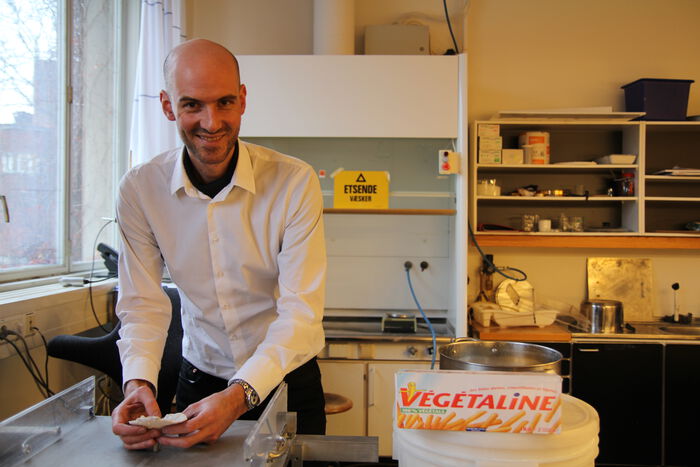You will find candidates with education and background in geosciences in various sectors, including public administration, consultancy firms, research institutes, and private companies both nationally and internationally.
We recommend reading career interviews (Norwegian only) with former students to gain insight into the opportunities available after completing your studies.
The master's programme has close connections with a range of research institutes and private companies, including the Norwegian Water Resources and Energy Directorate (NVE), Geological Survey of Norway (NGU), Norwegian Meteorological Institute, Norwegian Geotechnical Institute (NGI), Norwegian Polar Institute, The University Centre in Svalbard (UNIS), Centre for International Climate Research (CICERO), Norwegian Institute of Bioeconomy Research (NIBIO), Norwegian Seismic Array (NORSAR), Norwegian Institute for Water Research (NIVA), Equinor, and Hydro, among others. Many of our alumni work in these organisations after completing their studies.
The master's programme also collaborates closely with research environments and centres such as the Centre for Earth Evolution and Dynamics (CEED) and Centre for Planetary Habitability (PHAB).
A master's degree in geosciences provides a solid foundation for becoming a lecturer or holding other positions within the education sector.
After completing the master’s degree, you may consider PhD studies. Read more about this below:
Doctoral degree: PhD at the Faculty of Mathematics and Natural Sciences
Jobs and careers
Are you looking to prepare for life after your studies as you enter the workforce? Here, you can find tips and inspiration on how to plan for your future career while still being a student
Interviews with graduates - Career prospects
In Norwegian
-
Forsker p? isbreer
I Norge kommer 98 % av elektrisiteten v?r fra vannkraft. I alt 15 % av denne kommer fra vassdrag med breer. Isbreene er sv?rt sensitive for klimaforandringer, og er regnet som en n?kkelindikator p? effektene av klimaendringer, b?de lokalt og globalt.
-
Et forskerliv viet ildsprutende g?ter
?ret er 1988. Entusiastiske forskere har vulkanshow i en s?vnig fransk landsby. En ti ?r gammel gutt blir hekta. I dag dr?mmer Olivier Galland om ? l?se det store mysteriet om magmaens indre liv under jordoverflaten.
-
Verdens viktigste jobb
Realfagslektor Ane Aarre ?nsker at alle skal l?re ? se og skj?nne verden rundt seg.


